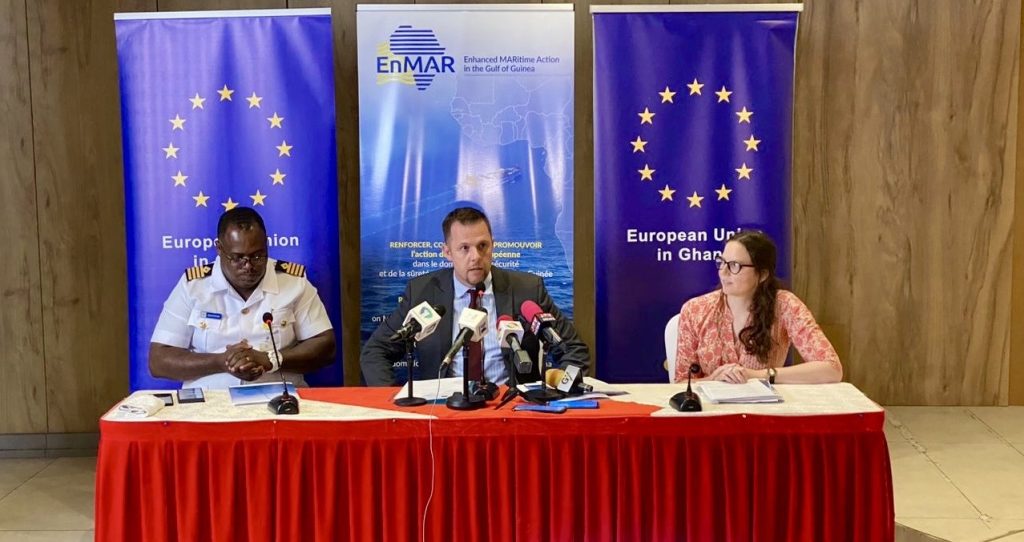By Eric Appah Marfo
Accra, June 22, GNA—Port Facility Security Officers (PFSOs) from more than 15 ports in West and Central Africa have undergone capacity-building on Port Security.
The five-day regional “Train-the-Trainers”course, which ended on Friday in Accra equipped the officers to train their colleagues for improved security in the maritime domain.
It is an European Union (EU)-funded “Enhanced Maritime Action (EnMAR) in the Gulf of Guinea” project implemented by Expertise France in collaboration with the Port Management Association for West and Central Africa (PMAWCA).
The objective is to strengthen capacities of PFSOs in the set-up and organisation of specific training courses for port security personnel along the guidelines of section 18.2 of the International Ship and Port Facility Security (ISPS) Code.
The ISPS Code is a comprehensive set of measures to enhance the security of ships and port facilities, developed in response to the perceived threats to ships and port facilities in the wake of the 9/11 attacks in the United States.
The purpose of the Code is to provide a standardised, consistent framework for evaluating risk, enabling Governments to offset changes in threat with changes in vulnerability for ships and port facilities through determination of appropriate security levels and corresponding security measures.
During the closing ceremony, Mr Jonas Claes, Deputy Ambassador, European Union Delegation to Ghana, said Port security was an important and strategic topic in view of its potential linkages with global trade, organised crime and security.
He said having the most modern equipment, best protocols and manuals would amount to little without professionalism and know-how of security officers in charge.
“That is why the theoretical and practical aspects of this week’s training are so important in making a real difference.”
He thanked participants for availing themselves and urged them to maintain the connections made for exchange of best practices.

Madam Marie Gibrat, Programme Manager of Enhanced Maritime Action in the Gulf of Guinea (EnMAR) Project at Expertise France, thanked the EU for funding the training and their continuous support to enhance maritime security in the Gulf of Guinea, through their various initiatives in the region.
“I also thank our hosts, Ghana Ports and Harbours Authority for their excellent
support. Thank you to the participants for their curiosity, their commitment, and thirst for sharing their experiences.”
She said recommendations developed during the training would be transmitted to the PMAWCA along with those from previous regional training sessions organised by the EnMAR Project.
Madam Gibrat said the training was the last of a series of four regional sessions for port stakeholders of West and Central Africa.
“The EnMAR project enhances maritime security and safety in the Gulf of Guinea through promoting political dialogue, improving the coherence of EU initiatives, raising awareness of EU action, and strengthening the operational capacities of national and regional institutional partners.”
“This training has been organised as part of this last objective of ensuring a long-lasting impact through the development of internal capacity-building on port security,” she said.
Captain James R. Quayson, General Manager Special Duty at GPHA, Headquarters, said security was paramount at the ports because without it, they could not exist and operate effectively.
He urged participants to utilise the knowledge gained and enhance security at the ports in their countries.
The Captain lauded the EU for the training, saying:“We appreciate whatever you’re doing in the domain, as such, we assure you that Ghana is home for training, security and anything you have to offer with regard to the maritime domain.”
“There are a lot of activities happening in the domain which needs a big brother like the EU to help us minimise the negative impacts of such activities,” he said.
GNA